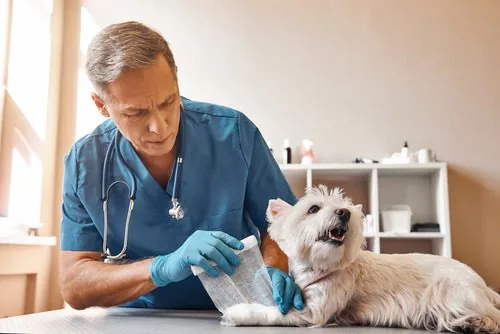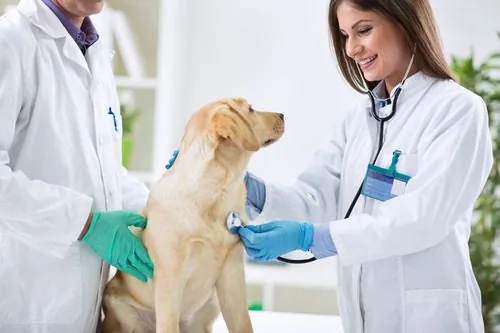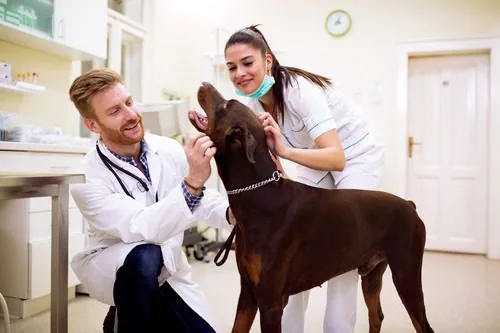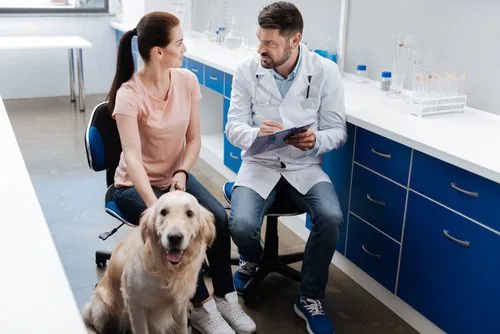What is Leptospirosis in Dogs, and is it Deadly?
Leptospirosis is a severe disease that is contagious and can affect any mammal. It can spread to your dog if they come in contact with infected urine or just by playing in the mud.
Leptospirosis in dogs occurs when the dog encounters bacteria through direct contact and it enters their body through a cut or scratch. Leptospirosis is fatal if it is not treated early enough and can be prevented with vaccination.
Leptospirosis triggers many disturbing symptoms you need to be aware of so that you can spot them early on in your dog. If you need to know more about leptospirosis in dogs and whether it is deadly, look at this article.
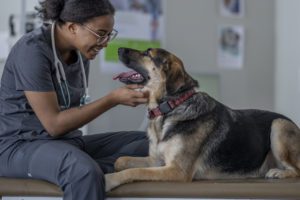
What is Leptospirosis?
Leptospirosis is a contagious or zoonotic bacterial illness that spreads to the mammal’s bloodstream. It can affect animals and people, but it is treatable with proper medical intervention and is preventable with the leptospirosis vaccine. If not treated, it can produce severe damage.
Leptospirosis can occur anywhere. However, it is more common in warm, wet climates with high rainfall. It can harm the dog’s liver and kidneys and can be fatal in severe cases. Some of the animals that are common carriers include:
- Skunks
- Raccoons
- Opossums
- Deer
- Wolves
- Rats
- Livestock
What Causes Leptospirosis in Dogs? 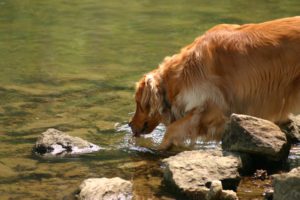
Leptospirosis occurs when the dog comes in contact with the Leptospira bacteria. The bacteria enter the body through an opening in the tissue or mucous membranes of the eyes, nose, or mouth. Some of the other ways dogs can become infected include:
- Coming in contact with infected animals or their urine
- Drinking or swimming in urine-contaminated water
- Through the bite of an infected animal
- Consuming the carcass of an infected animal
- Through the placenta of the mama dog to her babies
- Playing in the mud
- Direct contact with an infected animal
Since drinking contaminated water can cause infection, you should protect your pup from ingesting any strange water they may encounter, such as lakes, streams, rivers, and puddles.
What Are the Different Types of Leptospirosis?
Certain strains of leptospirosis are more likely to cause the disease than others. There are three primary types of illness. These include hemorrhagic, kidney, and icteric or jaundice.
Hemorrhagic
In this form of leptospirosis, the dog experiences a high fever and loss of appetite. There are also many small spots of bleeding that appear in the mouth and the whites of the eyes. Bloody diarrhea and vomiting may also arise in the dog.
Kidney
This form of leptospirosis causes kidney failure. There is profound appetite loss, and the dog may also vomit. The dog’s breath will typically have a foul odor, and they usually have ulcers on the tongue. There may also be excessive drinking and urinating.
Icteric or Jaundice
This type of leptospirosis is like the hemorrhagic type. However, an additional symptom is the yellowing of the mouth and the whites of the eyes. If the disease has progressed, the skin will also be yellowing.
 What Are the Symptoms of Leptospirosis?
What Are the Symptoms of Leptospirosis?
If your dog becomes infected with leptospirosis, they will have an incubation period of four to twenty days. Then they will begin to demonstrate symptoms such as fever, vomiting, diarrhea, and dehydration. These are not the only symptoms; which could also include:
- Depression
- Shivering
- Weakness
- Lethargy
- Increased heart rate
- Difficulty breathing
- Sore muscles
- Runny nose
- Red eyes
Yellowing of the skin, eyes, and gums and the swelling of the lymph nodes are also common in infected dogs.
Is Leptospirosis Deadly to Dogs?
The great news is that dogs can survive leptospirosis. Although it is a deadly disease, the prognosis is good if your pup gets the proper treatment, which is generally antibiotics. However, the prognosis is not good if your dog has severe kidney failure from leptospirosis.
You must watch for leptospirosis symptoms in your dog, and if they exhibit any of the symptoms, get them to the vet immediately. It cannot be said enough that if your pup receives treatment early on, it equals an improved chance for survival. The best way to avoid the infection is by having your dog vaccinated.
What is the Therapy for Leptospirosis in Dogs?
Dogs infected with leptospirosis usually require hospitalization and aggressive treatment. They are typically kept in a special isolation ward to prevent the dog from infecting other pups in the hospital. Treatment consists of intravenous fluids to help with dehydration and internal organ support. For appetite loss, vets usually employ a gastric tube to nourish your pup.
Antibiotics will also be prescribed, which can treat bacterial infections. If the condition is more serious, vets use doxycycline to eliminate the bacteria. The round of antibiotics lasts about four weeks, but it can save your dog’s life.
What is the Prevention of Leptospirosis in Dogs?
Even though the leptospirosis vaccine is not currently required for dogs, getting your pup vaccinated is an excellent idea because any dog that goes outside, even just to use the bathroom, can become infected. Dogs are curious creatures and will always stick their nose and mouth on things they should not. They can get infected if they like to play in muddy waters and swim.
The vaccination only covers certain types of the multiple variations of the bacteria that cause leptospirosis. Having your pup vaccinated also reduces the chance that they will become very sick from the illness if they should happen to become infected. As a general rule, you should discuss what vaccines are appropriate for your dog with your veterinarian.
Besides vaccination, it is essential to keep your dog away from any muddy or marshy areas outside and any areas where there is stagnant water. Be sure to bring fresh, clean water for your pup to drink when you go on long walks with them and keep them away from wildlife.
Conclusion
Leptospirosis can be fatal for your dog if they do not receive treatment soon enough upon infection. The best way to prevent your dog from getting sick is to vaccinate them. The last thing any pet parent wants to see in their pup is a severe illness. If you see any of the indicators stated in this article in your dog, get them to the vet immediately, as early treatment can make all the difference.
For dogs in the Winter Haven, FL area, Veterinary Healthcare Associates is available at (863) 324-3340, or you can make an appointment today!
Recent Posts
Working at a 24/7 Emergency Veterinary Practice
Working at a 24/7 Emergency Veterinary Practice Working at a 24/7 emergency veterinary practice is a unique…
Do Veterinarians Have a Good Work-Life Balance?
Do Veterinarians Have a Good Work-Life Balance? When it comes to the dedicated professionals who care for…
6 Reasons to Work in a Specialty Referral Veterinary Practice
6 Reasons to Work in a Specialty Referral Veterinary Practice Working in the veterinary field is incredibly…
Is Being an Oncology Veterinarian a Rewarding Career?
Is Being an Oncology Veterinarian a Rewarding Career? Choosing a career path in veterinary medicine opens the…
Canine Water Treadmill Therapy
Canine Water Treadmill Therapy Welcome to our informative guide on Canine Water Treadmill Therapy. This revolutionary rehabilitation…
About Veterinary Healthcare Associates
Veterinary Healthcare Associates in Winter Haven, FL, was established over 30 years ago as Maxwell Animal Clinic by Dr. John Maxwell. Maxwell Animal Clinic was a one-doctor general practice offering preventive care, dentistry, and standard surgical services to the community. As the years passed, Maxwell Animal Clinic evolved into a thriving 10-doctor general, specialty referral, and emergency veterinary practice.

